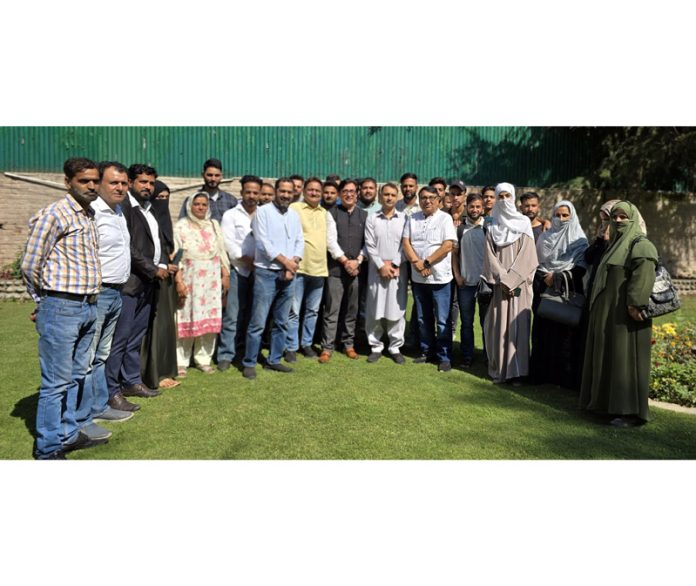It is unbelievable that a few years after the visit of the President, the lives of the once-hopeless and frustrated people have completely transformed. At the top of the remote mountains of central China’s Hunan Province, Shibadong, lives 71-year-old Shi Ba San of the Miao ethnic group. Every day, she wakes up early in the morning and admires the scenic beauty of the evergreen mountains.
Shi is also conscious of the bustling economic activities taking place in that area. She cannot believe her eyes on what she sees on daily basis. For the past 5,000 years, life has been tough for the Miao people, who live in this once-isolated remote village that is now teeming with at least 200 households.

Not long ago, persistent poverty was a dominant feature in this area. Young men led a life of celibacy because they could not make ends meet; the place had no piped water and people depended on gathering wild fruits and vegetables for their survival. No wonder, most of them were wallowing in poverty.
“Young men were afraid of marrying because they had no money. Today most of them are happily married because they can work and earn a living,” said Qun Cui Shi, a tour guide employed by the local industry. But to the disbelief of the Miao ethnic group, one day, things completely changed in their lives.
On November 3, 2013, Shi had the shock of her life when the community had a surprise visitor in the name of Chinese President Xi Jinping, who set foot in the village for the first time. He sat in the houses of members of the impoverished households to hear the truth and facts of their lives, in terms of problems they were facing and their needs. Xi promised to transform their lives and that is how the concept of targeted poverty alleviation was initiated.
The notion later inspired anti-poverty fights across China. This is why Shibadong is called the birthplace of China’s targeted poverty alleviation campaign. It is also a shining example of China’s poverty alleviation programme to the entire world.
Sister Shi, as she is popularly known in the area, remembers that her house was the first stop for the general secretary when he visited Shibadong. According to writings placed on her doorstep in remembrance of the occasion, when she first saw Xi, she did not recognise him and asked: “What can I call you?” To which Xi replied: “I am a servant of the people.” The two chatted by the fire pit.
“Do you have enough food to eat? Do you grow fruit trees? Do you raise pigs,” Xi asked. “In good years, there was enough to eat but not in bad years; I have no fruit trees but we have two pigs,” she replied. Today, Shi and all those once-gloomy faces are now smiling.
She sits on her veranda and sees the booming tourism business in the area. She thinks about the President a lot and still has vivid memories of his visit. Now she runs her own business of smoked bacon while her colleagues sell food stuffs and embroideries.
It is unbelievable that a few years after the visit of the President, the lives of the once-hopeless and frustrated people have completely transformed. The village has become a tourist destination, attracting over 600,000 tourists in 2023, according to the Tour Guide. Global Times reported that 10 years after the visit of the high-profile politician, Shibadong has become a vivid example of China’s poverty reduction campaign to the world, forming a modern development platform based on unique local conditions.
Times reported that a growing number of young people who used to work outside Shibadong are returning to their hometown and starting their own businesses. Not just that, university graduates from the village are choosing to return to their hometown and contribute to the development of the village. Most of them have engaged in modern agriculture and tourism.
A group of African journalists, who visited the place this month, were told by the authorities that houses and a local primary school were upgraded and the people now have access to potable water. The problem of transportation has also been addressed following the construction of a modern road that passes through the mountains. The Chinese believe in seriously adopting a down-to-earth and pragmatic style of work to lift those in true need out of poverty and to fully eliminate poverty.
This is courtesy of the 18th Communist Party of China (CPC) National Congress, where the party’s central committee placed poverty alleviation in a prominent position in the governance of the country and organised a huge peoples’ battle against poverty. International Poverty Reduction Centre in China, Deputy Director General for Poverty Reduction, Li Xin, said they worked on the proposal which involved implementing specific relief measures based on the particular condition each area was experiencing. She said they first engaged in poverty identification to know who was poor and in need of resources they could put to good use.
“We had a file of each household. What kind of help they needed before coming up with a poverty reduction strategy,” Li said. She said the authorities are firm when disbursing assistance to those targeted.
“Those capable of working must work. If they don’t work, no assistance. The roads are good.
The government grants them small credit loans to start businesses and plant cash crops,” Li said. She said farmers can easily transport their produce to the markets because the roads are good. Li said, through this poverty eradication initiative, absolute poverty has been eradicated in China, which is the world’s second most populous country, with over 1.
4 billion people. “No one is poor, according to our national threshold,” she said. Having dealt with poverty eradication, they have now embarked on a rural revitalisation programme, which illustrates the nation’s commitment to nurturing prosperity and sustainability in its countryside.
The programme aims to achieve infrastructure development, healthcare and digitalisation. Li said these policies aim to ensure that rural areas play a vital role in the country’s socio-economic progress..



















